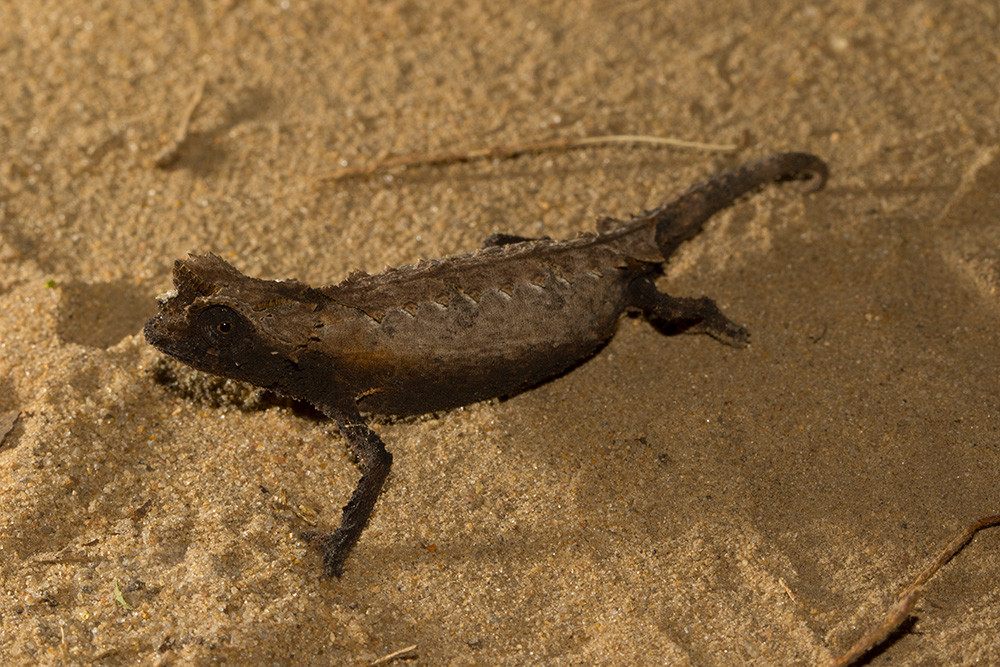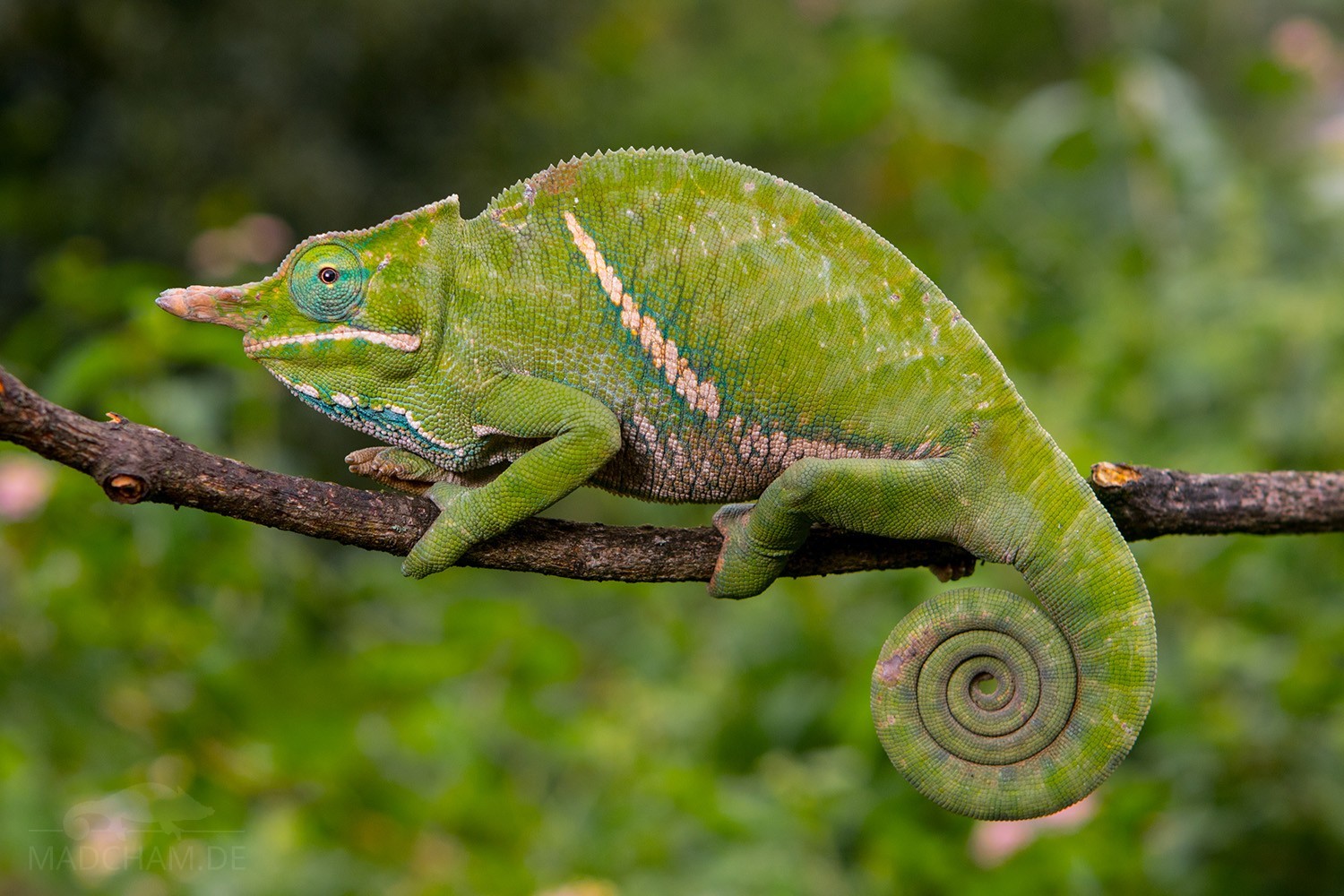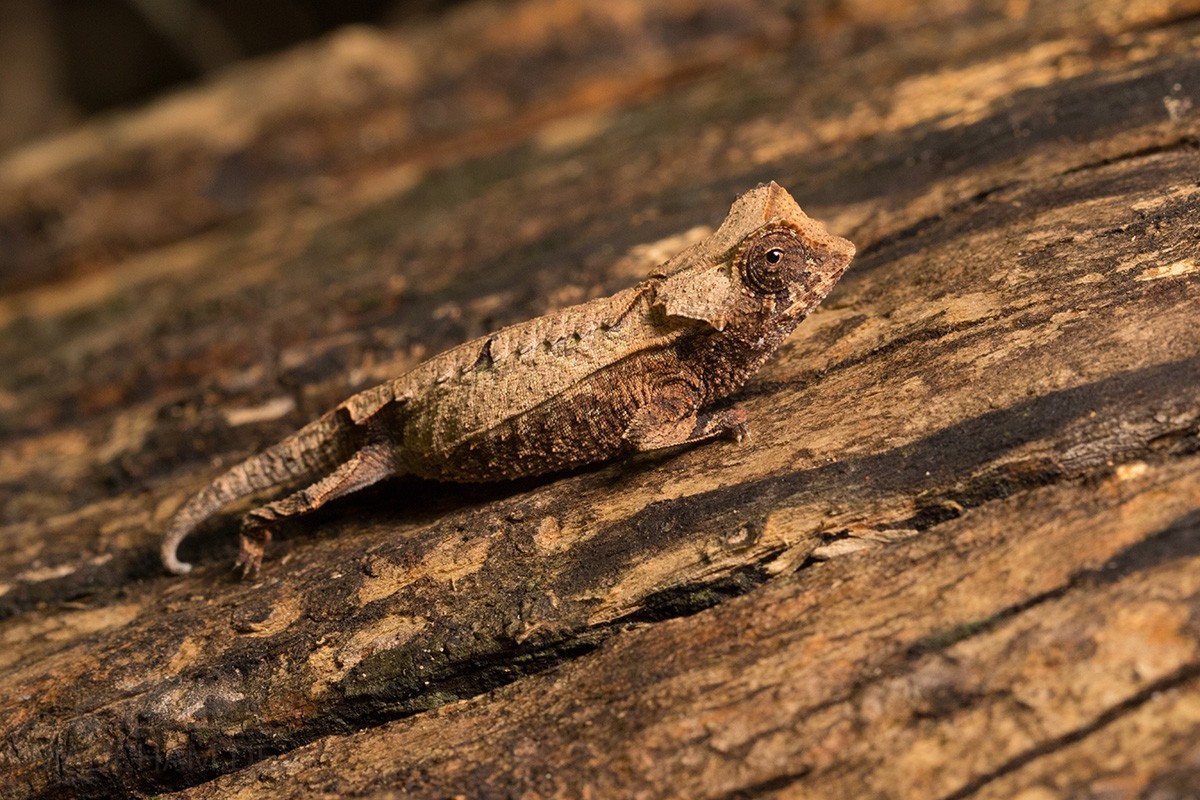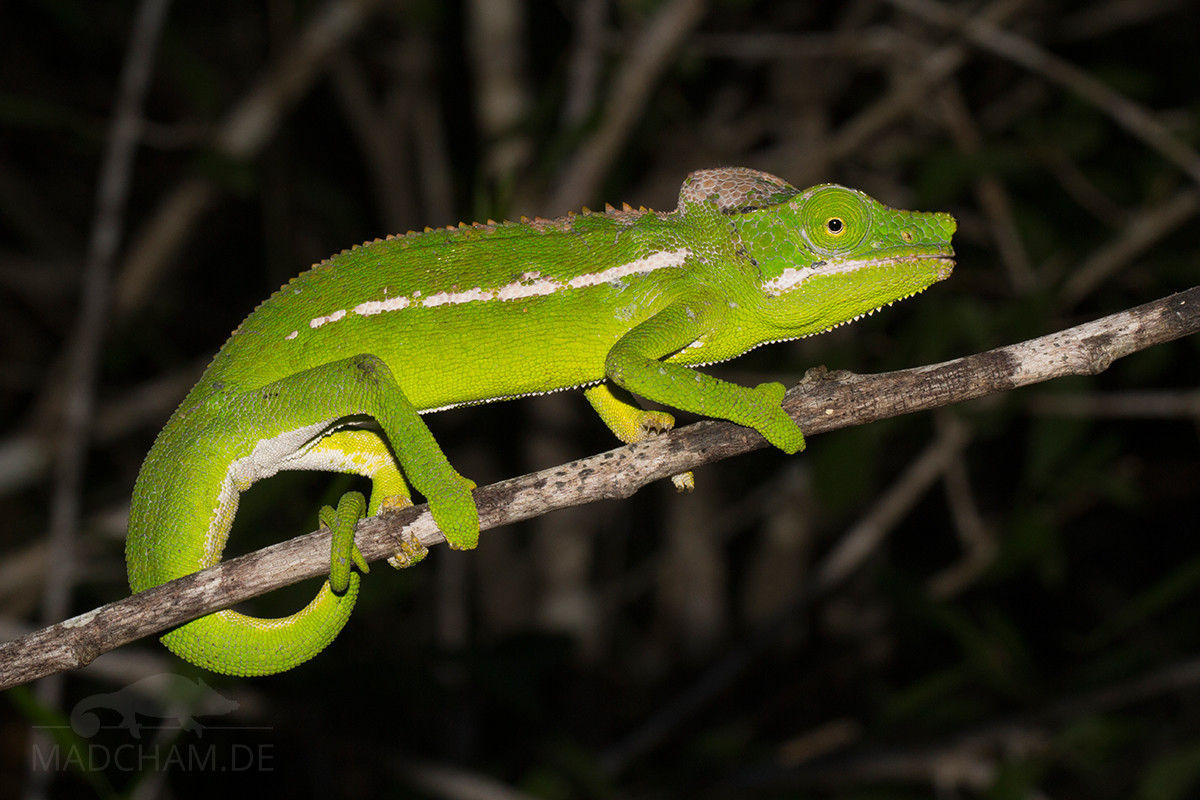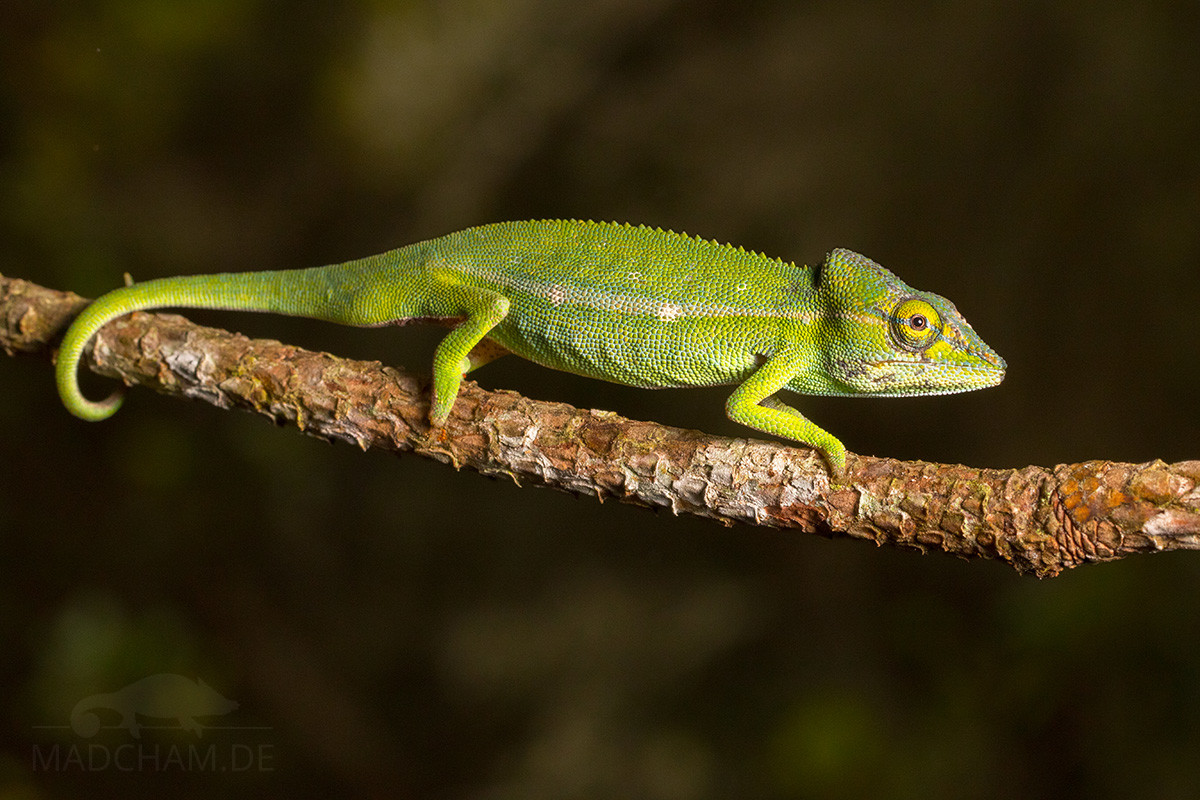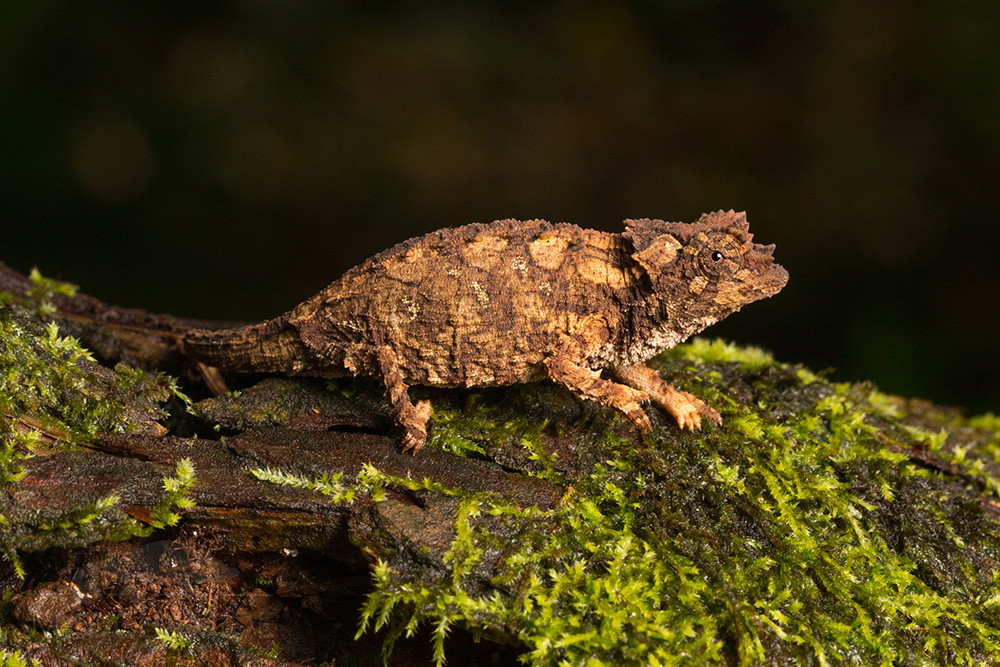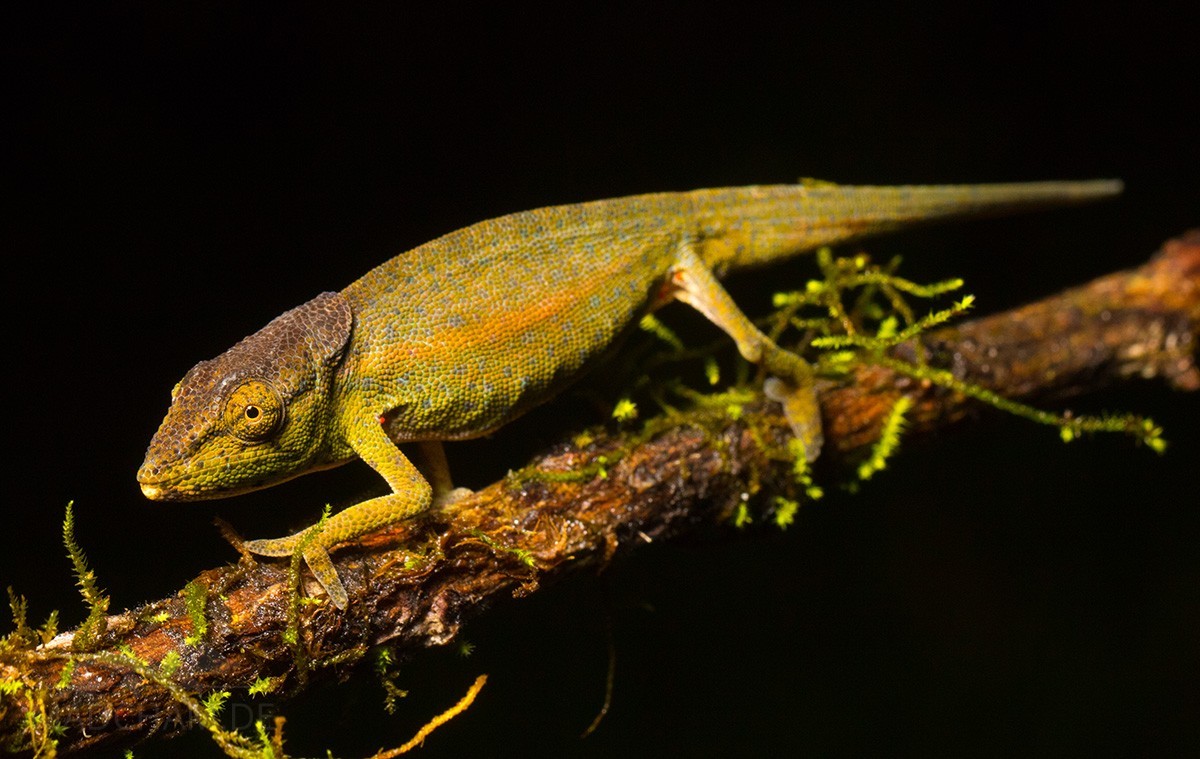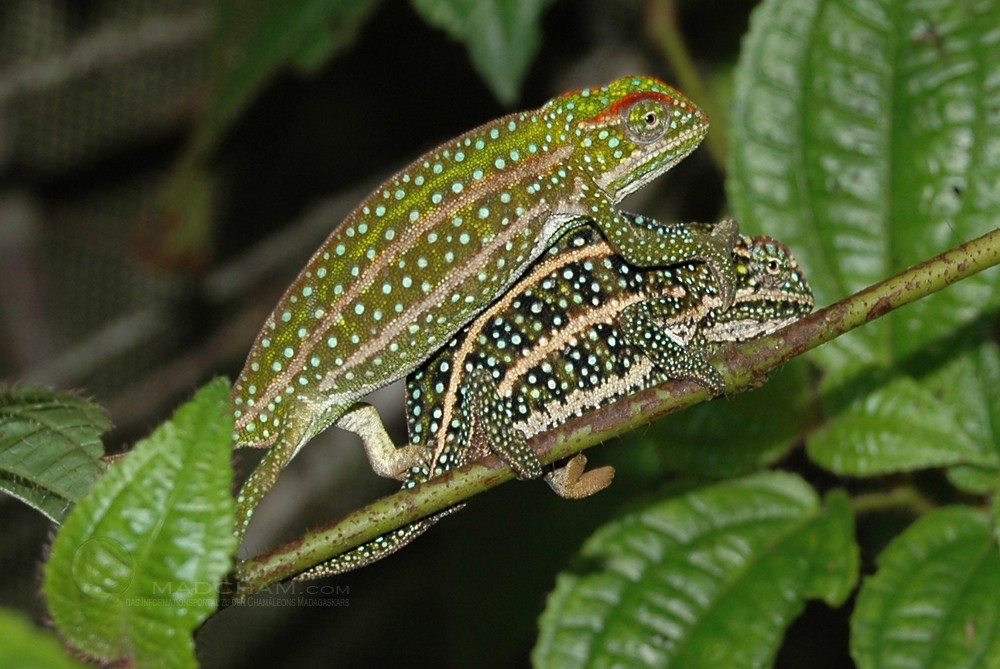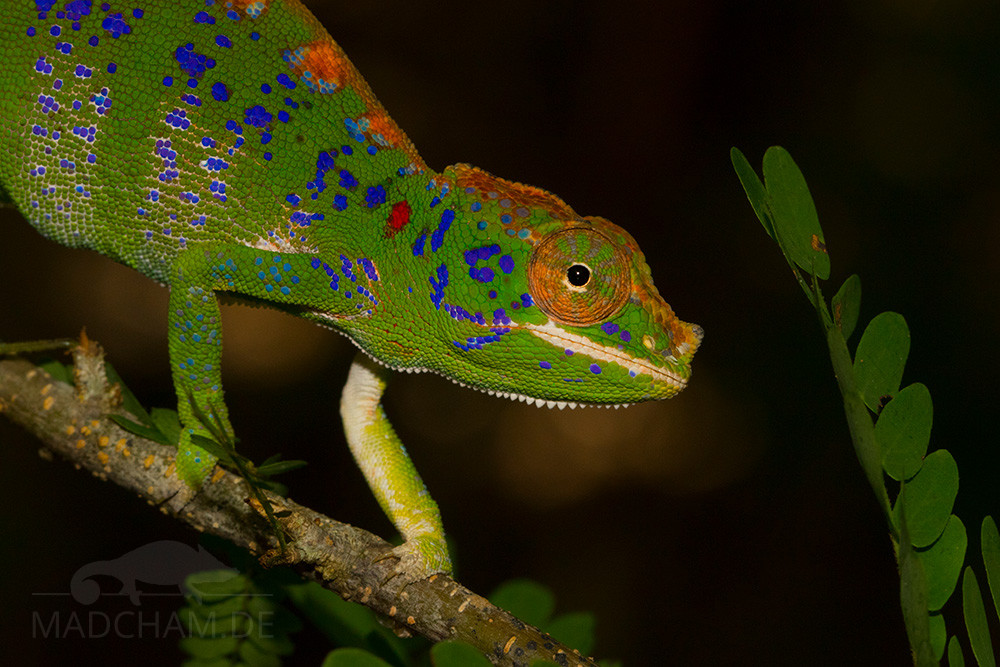Brookesia brygooi
First description: Raxworthy & Nussbaum, 1995 Origin of the species name: Christopher J. Raxworthy from the American Museum of Natural History, New York (USA) and Ronald A. Nussbaum from the University of Michigan, Ann...
Furcifer balteatus
First description: (Duméril & Bibron, 1851) Origin of the species name: The zoologist André Marie Constant Duméril, then head of herpetology at the Natural History Museum of Paris (France), together with his assistant Gabriel...
Brookesia confidens
First description: Glaw, Köhler, Townsend, Vences 2012 Origin of the species name: Frank Glaw of the Zoologic State Collection Munich (Germany), Jörn Köhler of the Hessian State Museum Darmstadt (Germany), Ted Townsend of the...
Brookesia decaryi
First description: Angel, 1939 Origin of the species name: Fernand Angel described this chameleon species on the basis of prepared animals that were kept in the Natural History Museum of Paris (France). The chameleons...
Furcifer belalandaensis
First description: (Brygoo & Domergue, 1970) Origin of the species name: The zoologists Édouard-Raoul Brygoo and Charles Antoine Domergue worked at the Institut Pasteur in Antananarivo, Madagascar, and simply named the species after the...
Calumma gastrotaenia
First description: (Boulenger, 1888) Origin of the species name: The Belgian zoologist George Alber Boulenger, at that time working at the Natural History Museum in London (Great Britain), probably named this chameleon species after...
Brookesia ebenaui
First description: (Boettger, 1880) Origin of the species name: The palaeontologist Oskar Böttger, then curator of the Senckenberg Museum in Francfort (Germany) wrote the original description in 1880 – still in Latin, by the...
Calumma glawi
First description: Böhme, 1997 Origin of the species name: The German herpetologist Wolfgang Böhme, former head of the section for herpetology of the Museum König in Bonn (Germany), named this chameleon species in honor...
Furcifer campani
First description: (Grandidier, 1872) Origin of the species name: The French naturalist Alfred Grandidier visited Madagascar three times between 1865 and 1868, traveling almost the entire island and producing one of the first maps...
Furcifer labordi
First description: (Grandidier, 1872) Origin of the species name: The French naturalist Alfred Grandidier visited Madagascar three times between 1865 and 1868, traveling almost the entire island and producing one of the first...

